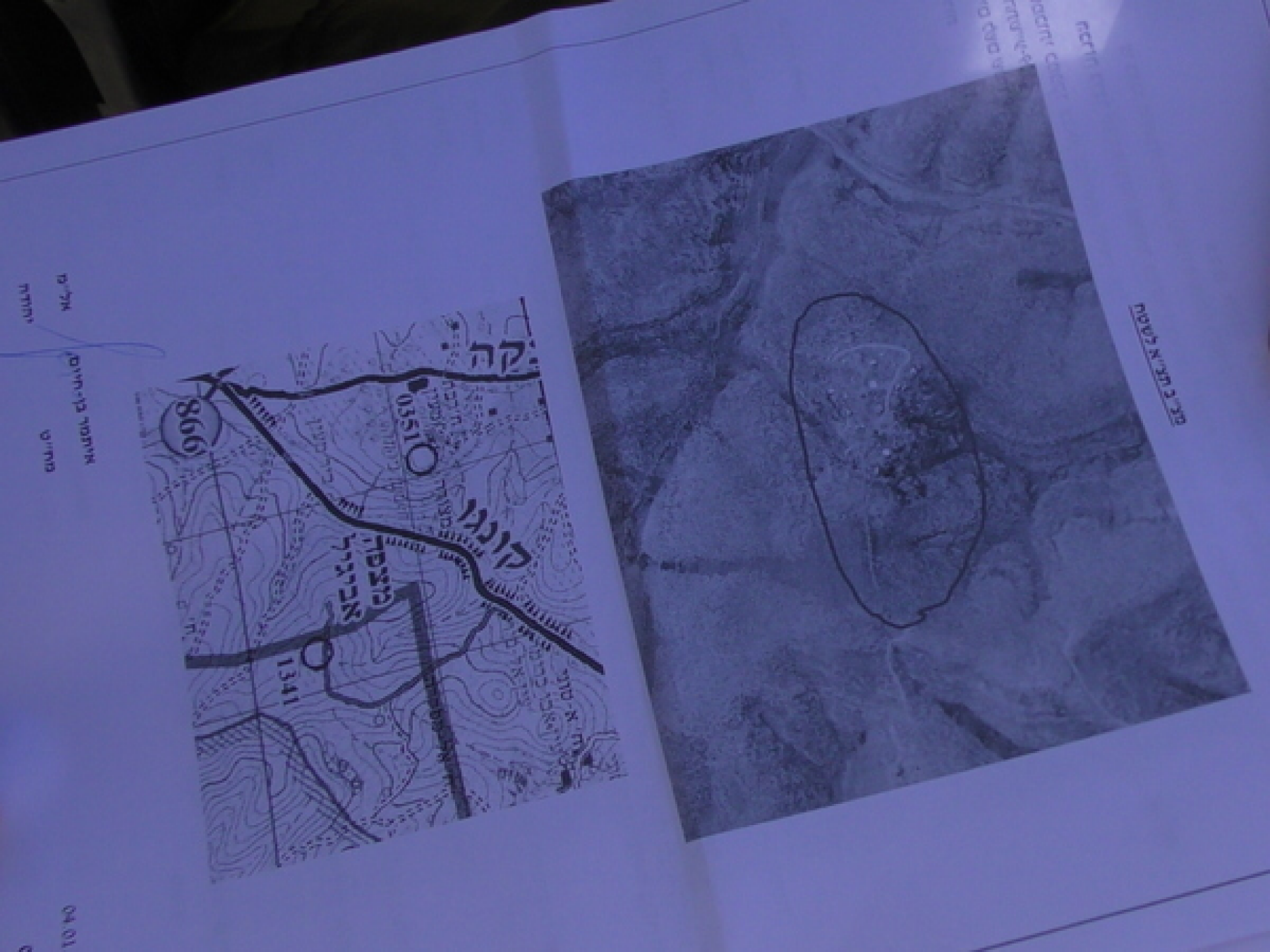Dura-Al Fawwar Junction, Sansana (Meitar Crossing), South Hebron Hills
The Meitar checkpoint is open but Muhammad reported heavy traffic in the morning, parking lot is packed and cars are parked behind the traffic circle on Road 60 (beyond the checkpoint). On the Israeli side there are more people than usual, maybe families. They are waiting for shuttles and rides, including women – it seems that they are not workers. Maybe families of the prisoners who missed the transport.
Highway 60 is pretty quiet. We turn onto Route 317 toward Tuwani because we wanted to hear first hand about the action at the spring on Friday. We did not find Nasser and continued to the little house of the Italian "Operation Dove" volunteers. Two volunteers were home and greeted us warmly in spite of the freezing cold. This was not the first time we had visited, but this time we noticed the very harsh conditions. They don't have hot water and there is no possibility of doing laundry or having a shower. The house is leaking in the rain. It turns out that although each delegation includes six people, the volunteers are divided into groups of at least two. They serve 10 days or two weeks and then have leave which they spend in an apartment in Bethlehem, where conditions are better. And there are always at least two who stay in the village. As for their work, they said that at present accompanying of the children of Umm Tuba by the army is being conducted well. Soldiers arrive on time and accompany the children on foot rather than by car, which is more effective and safe.
"There is a new commander who seems to take the escorting of the children from Umm Tuba seriously. The soldiers walk besides them rather than riding in their vehicles as they did previously. However the commander does not let the Dove volunteers join the escort, they have to leave that to the soldiers.
Friday activity: Planting trees near the spring that the Abigail outpost "conquered” from the Palestinians: There was a military presence and a border guard, but they separated settlers and Palestinians and allowed Palestinians to plant without interruption. To international and Israeli activists a boundary was set beyond which they were not allowed to go, but in practice they ignored this and the activists simply went to help in the planting. They were from International Solidarity Movement, Jews for Justice of Palestinians and Taayush.
After the activity of course came the "reality" and the army put a curfew on the village (see photos). Although the closure was removed after two days but according to the map the curfew included the settlement Maon and not just Tuwani.
was removed after two days but according to the map the curfew included the settlement Maon and not just Tuwani.
One volunteer said he needed to return to Italy to renew his visa and he hoped that the Israeli authorities would let him back. Some volunteers have been refused entry into Israel before and it is never sure that they will be allowed to enter. In contrast, they have a good relationship with the villagers who appreciate their help. Brave people.
We returned via al Fawwar on Road 60, which was closed for two days (Friday, Saturday): They could only enter on foot and not by car. Today the village was open.
It should be noted that we saw a few more military vehicles than usual and when we went back through the Meitar checkpoint the guard demanded to see everyone’s ID cards not just that of Mohammad, which is unusual

